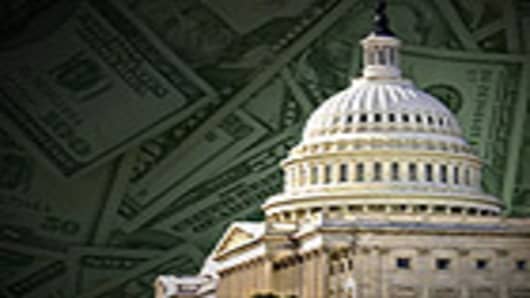Before everyone gets their underwear in a bundle, the Senate merely voted to start the debate and amendment process for the Reid Health Care bill. The 60 vote barrier was almost pre-ordained before it took place. The fun starts now with several Democratic senators warning they won't vote again on the bill without significant changes. Make no mistake, this bill has traveled far and wide from it's original intent of inclusion and improvement that was promised at the start of this process.
Remember, the reason why we started down this path was to bend the cost curve back downwards for the ever increasing expenditures associated with health care. These costs were considered detrimental to the fiscal health of the United States in the long run. There was also a goal of getting more covered or into insurance to reduce the overall costs for the nation. How far have strayed from this dual purpose.
The Reid bill is a potent mix of tax increases and mandates that will still cost between $800 billion to $1 trillion depending on what will be included in the final bill. There are tax increases on individuals and workers, there are fees on the health care industry, there are increasing costs for consumers, and there are tax increases on businesses. From the tax on the high cost health plan to fees on insurance plans for comparative effectiveness research trust fund to the "free rider" penalty excise tax, this bill is amazingly complex and diverse in it's scope to raise receipts to pay for what it wants to do.



